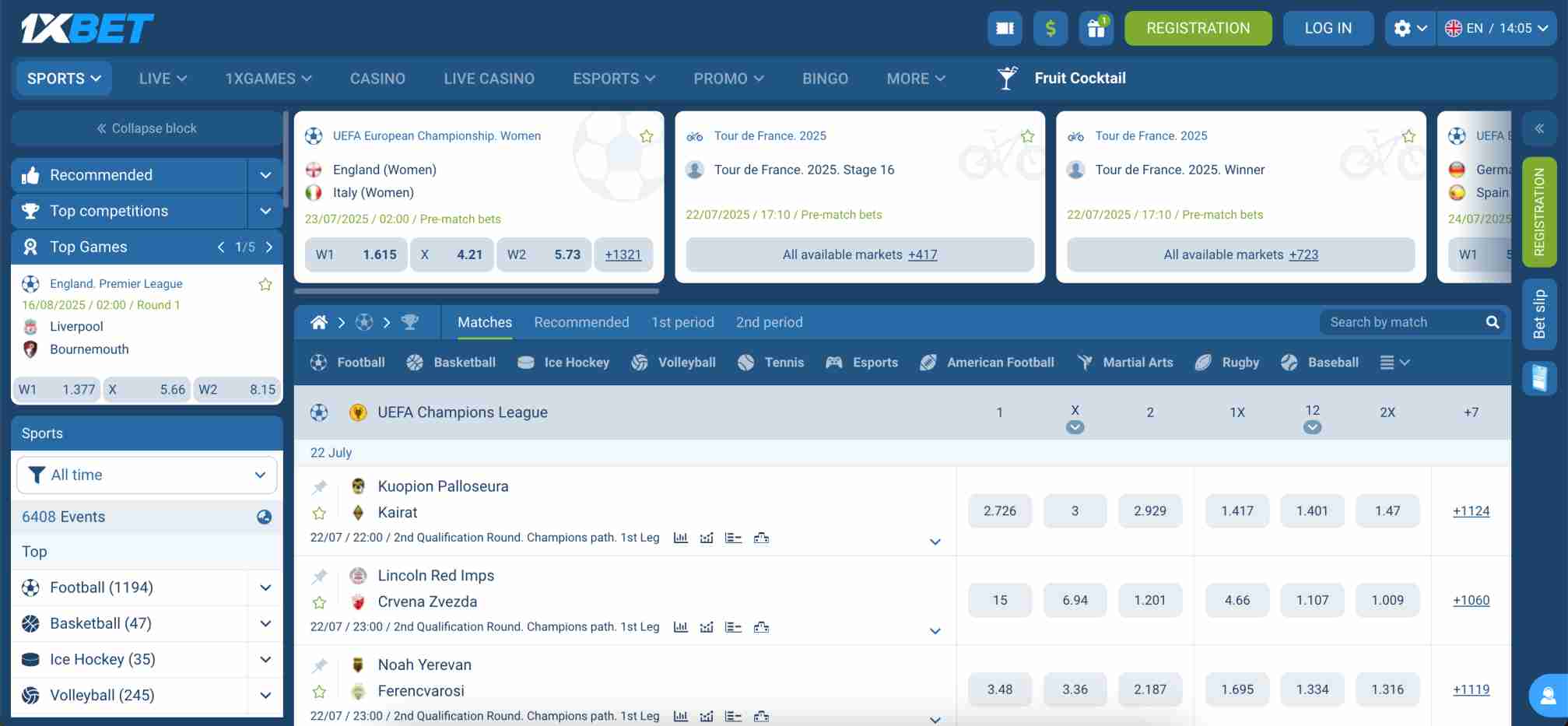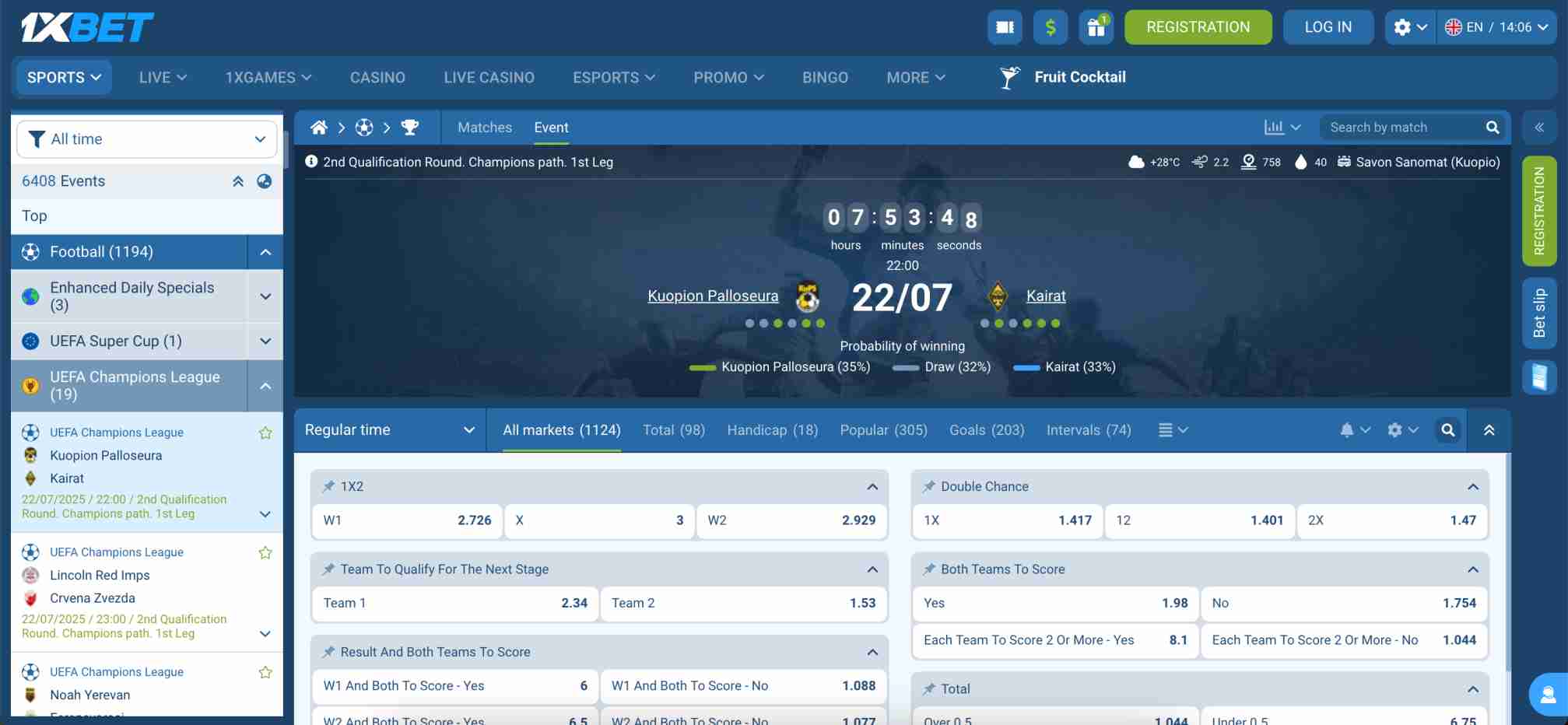Can 1xBet Refuse to Pay Out? Understanding the Reasons and Solutions
1xBet may refuse payouts for various reasons, including unverified accounts or unmet bonus conditions. Understanding these can help avoid issues.

1xBet can refuse to pay out under certain circumstances, but understanding the common reasons behind these refusals can help prevent frustration.
Typically, payouts are processed smoothly, but issues can arise if your account is unverified, you haven’t met wagering requirements for bonuses, or you’re engaging in suspicious activities like bonus abuse.
Other factors, such as exceeding withdrawal limits or trying to cash out unusually large sums, can also lead to problems.
So, can 1xBet refuse to pay out? Yes, but knowing the rules and following the correct steps can minimize your risk. In this article, we’ll explore these reasons in more detail and offer tips to help ensure your withdrawals are successful.
Can 1xBet refuse to pay out? Common reasons for refusal
1xBet, like most sportsbooks, has policies and procedures in place to ensure fair play and security. There are several reasons they might refuse a payout, though, and understanding them can help you avoid any surprises.
1. Unverified account
One of the most common reasons for a refusal is an unverified account. When you sign up, 1xBet requires you to verify your identity to ensure that you're the legitimate account holder.
This process typically involves submitting documents like a government-issued ID, proof of address, and sometimes a payment method verification.
If this step is skipped or incomplete, your withdrawal may be blocked until you complete the verification — and in some cases, you may even undergo enhanced verification for added security.
In my experience, the verification process can take some time, so it’s important to do this early on to avoid delays when you’re ready to withdraw your funds.
2. Meeting the wagering requirements
Another reason 1xBet might refuse a payout is if you haven’t met the wagering requirements tied to any bonuses or promotions.
Many players are drawn in by the bonus offers, but these often come with certain conditions that must be fulfilled before you can withdraw the bonus funds.
If you’ve accepted a bonus, make sure you check the terms and conditions carefully and meet the requirements (such as a minimum number of bets or a required wagering amount).
3. Bonus abuse or fraudulent activity
If there’s any indication of bonus abuse, match-fixing, or fraudulent activity, 1xBet can refuse to pay out.
This includes activities like using multiple accounts to claim bonuses or betting patterns that suggest you're intentionally trying to manipulate the system.
In these cases, 1xBet reserves the right to withhold withdrawals and even suspend accounts.

4. Withdrawal limits and restrictions
While it’s rare, 1xBet may refuse to pay out if your winnings exceed the platform’s withdrawal limits.
These limits can vary based on the payment method, account status, or the country you're withdrawing from. Always check the specific withdrawal limits for your account to avoid this issue.
Some users may also find that their withdrawal request is temporarily delayed due to the amount being withdrawn exceeding the standard payout for their account type.
If this happens, 1xBet may ask for additional documentation or request that the withdrawal be split into multiple payments.
How to avoid payout issues on 1xBet
- Ensure your account is verified: As mentioned earlier, make sure you complete all necessary verification steps. Not only will this help speed up your withdrawals, but it also ensures you won’t run into issues down the line.
- Check the terms of any bonuses: Before claiming a bonus, always read the terms and conditions. Make sure you understand the wagering requirements and complete them before attempting a withdrawal.
- Be mindful of limits: Familiarize yourself with the maximum withdrawal from 1xBet so you know what to expect before requesting a large payout. If you're planning to cash out a large sum, check if there are any specific rules or thresholds that might affect your payout.
- Avoid suspicious activity: Stick to fair play and follow the platform's rules. If 1xBet detects unusual betting patterns or any form of bonus abuse, they could refuse a payout. Always gamble responsibly and within the platform’s guidelines.
What to do if 1xBet refuses to pay out
If 1xBet refuses to pay out your winnings, the first step is to contact their customer support team.
They can explain the reason for the refusal and help you resolve the issue. In my experience, 1xBet’s support team is responsive and usually resolves issues fairly quickly.
If you're unable to reach a resolution, you can also escalate the matter to the relevant regulatory authority or the gambling commission for your country, especially if you feel that the refusal was unjustified.
Final thoughts on 1xBet payouts
While 1xBet generally has a reputation for smooth payouts, there are a few common reasons they might refuse to process your withdrawal.
By following the platform’s verification process, adhering to bonus terms, and staying within the limits, you can avoid most of the issues that lead to payout refusals.
If you do run into any problems, the customer support team is there to assist you and help ensure a fair outcome.
FAQs
Can 1xBet refuse to pay out?
Yes, 1xBet can refuse payouts for reasons like an unverified account, unmet bonus conditions, or suspicious activity. Always follow platform rules to avoid issues.
What should I do if 1xBet refuses my payout?
If 1xBet refuses to pay out, contact their customer support team for clarification and assistance. You can escalate the issue to a regulatory body if needed.
How can I avoid payout issues on 1xBet?
To prevent payout issues on 1xBet, ensure your account is verified, meet wagering requirements for bonuses, and be mindful of withdrawal limits and restrictions.
Does 1xBet have withdrawal limits?
Yes, 1xBet has withdrawal limits that can vary based on payment methods, account status, and country. Make sure to check these limits before requesting a large payout.
What could cause 1xBet to refuse a payout for bonus abuse?
1xBet may refuse payouts if they detect bonus abuse or fraudulent activity, such as using multiple accounts to claim bonuses or suspicious betting patterns.
